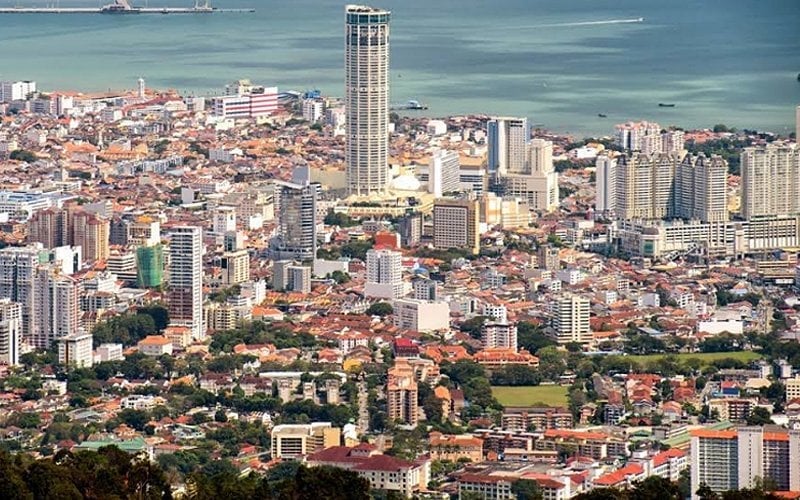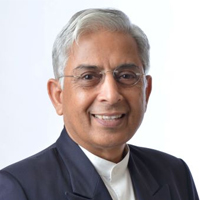FMT:
Penang’s petroleum tax bid will spur other states, says expert
Law expert Shad Saleem Faruqi says Penang’s quest for sales tax on petroleum products may require a substantial rewrite of the Federal Constitution.

Penang chief minister Chow Kon Yeow wants his state to be able to impose a sales tax on petroleum products found in its waters. (Facebook pic)
GEORGE TOWN: A constitutional expert has cautioned that Penang’s desire to impose a sales tax on petroleum products may see other peninsula states making similar demands if they strike oil within their waters.
GEORGE TOWN: A constitutional expert has cautioned that Penang’s desire to impose a sales tax on petroleum products may see other peninsula states making similar demands if they strike oil within their waters.

Shad Saleem Al Faruqi.
Shad Saleem Faruqi said any discovery of fossil fuels or other minerals by states within their boundaries could give rise to a clamour for the Federal Constitution to be amended to allow states to impose their own taxes.
“Every state (in the peninsula) would ask why (only) Penang and not us? So I think it is going to trigger a massive demand for a constitutional amendment.
“It would trigger (demands for) a new constitution, and I don’t think that this is the right time (for that),” he told FMT.
Shad Saleem Faruqi said any discovery of fossil fuels or other minerals by states within their boundaries could give rise to a clamour for the Federal Constitution to be amended to allow states to impose their own taxes.
“Every state (in the peninsula) would ask why (only) Penang and not us? So I think it is going to trigger a massive demand for a constitutional amendment.
“It would trigger (demands for) a new constitution, and I don’t think that this is the right time (for that),” he told FMT.
Last month, Penang chief minister Chow Kon Yeow said his state might consider emulating Sarawak by levying a sales tax on petroleum products if oil is found in its waters. Under the constitution, only Sabah and Sarawak have the right to impose the tax, in line with the Malaysia Agreement 1963 (MA63).
The suggestion was dismissed by Chow’s predecessor, Lim Guan Eng, who said Penang had no authority to impose the tax under the constitution. Chow said in response that he was keen to press ahead with plans to pursue oil royalties despite the legal hurdles.
Shad said Putrajaya was likely to ask that Penang put its request on hold, as it already had its hands full in addressing Sabah and Sarawak’s MA63 demands.
“I don’t think this is the right time, really, unless one is going for a totally new federal system.
“I am not against the idea that the states must get a proportion of their wealth. I don’t think anyone will oppose that idea. But at the same time, the Federal Constitution is there and one cannot just say that we need to change it for only one state but not for other states.
“I think the kind of changes talked about here will require massive (work), not just in amending, but it would require rewriting (the constitution),” he added.
The suggestion was dismissed by Chow’s predecessor, Lim Guan Eng, who said Penang had no authority to impose the tax under the constitution. Chow said in response that he was keen to press ahead with plans to pursue oil royalties despite the legal hurdles.
Shad said Putrajaya was likely to ask that Penang put its request on hold, as it already had its hands full in addressing Sabah and Sarawak’s MA63 demands.
“I don’t think this is the right time, really, unless one is going for a totally new federal system.
“I am not against the idea that the states must get a proportion of their wealth. I don’t think anyone will oppose that idea. But at the same time, the Federal Constitution is there and one cannot just say that we need to change it for only one state but not for other states.
“I think the kind of changes talked about here will require massive (work), not just in amending, but it would require rewriting (the constitution),” he added.

S Saravana Kumar.
Tax lawyer S Saravana Kumar said he would support such an amendment, adding that it was regressive for only the two East Malaysian states to be accorded the right to impose the tax.
Saravana said the current practice was “not progressive if one looks at the concept of fiscal decentralisation”, and that it contradicted the spirit of federalism.
“(In fact), the fiscal decentralisation that we give to Sabah and Sarawak is not sufficient. More financial autonomy should be given to Sabah, Sarawak and also to states in the peninsula.
“Taxes cannot be the sole right of the federal government, especially when it comes to land and mineral resources, as the latter items are under the state list (contained in the Federal Constitution).”
Another tax lawyer, William Wong, said the constitution granted “specific authority” to both East Malaysian states to enact laws for the imposition of sales tax.
Tax lawyer S Saravana Kumar said he would support such an amendment, adding that it was regressive for only the two East Malaysian states to be accorded the right to impose the tax.
Saravana said the current practice was “not progressive if one looks at the concept of fiscal decentralisation”, and that it contradicted the spirit of federalism.
“(In fact), the fiscal decentralisation that we give to Sabah and Sarawak is not sufficient. More financial autonomy should be given to Sabah, Sarawak and also to states in the peninsula.
“Taxes cannot be the sole right of the federal government, especially when it comes to land and mineral resources, as the latter items are under the state list (contained in the Federal Constitution).”
Another tax lawyer, William Wong, said the constitution granted “specific authority” to both East Malaysian states to enact laws for the imposition of sales tax.

William Wong.
“Importantly, any sales tax imposed by state law in Sabah or Sarawak is explicitly deemed to fall within the matters enumerated in the state list, not the federal list,” he said.
Wong said a legal dispute between Petronas and Sarawak in 2019 was determined without a discussion on the specific scope of petroleum taxes accorded to the Bornean states, leaving the matter unresolved by the courts.
In 2020, the Kuching High Court dismissed a judicial review challenge to Sarawak’s Sales Tax Ordinance 1998 and ordered the national oil company to pay RM1.3 billion to the state in sales taxes on petroleum products.
While Petronas might have conceded that the Sarawak state legislature had the authority to pass the tax ordinance, Wong said the corporation also argued that petroleum products fell within the exclusive jurisdiction of the federal list.
“The High Court’s decision affirmed the validity of the ordinance but did not explicitly address whether petroleum products could be subject to state sales tax.”
“Importantly, any sales tax imposed by state law in Sabah or Sarawak is explicitly deemed to fall within the matters enumerated in the state list, not the federal list,” he said.
Wong said a legal dispute between Petronas and Sarawak in 2019 was determined without a discussion on the specific scope of petroleum taxes accorded to the Bornean states, leaving the matter unresolved by the courts.
In 2020, the Kuching High Court dismissed a judicial review challenge to Sarawak’s Sales Tax Ordinance 1998 and ordered the national oil company to pay RM1.3 billion to the state in sales taxes on petroleum products.
While Petronas might have conceded that the Sarawak state legislature had the authority to pass the tax ordinance, Wong said the corporation also argued that petroleum products fell within the exclusive jurisdiction of the federal list.
“The High Court’s decision affirmed the validity of the ordinance but did not explicitly address whether petroleum products could be subject to state sales tax.”
No comments:
Post a Comment